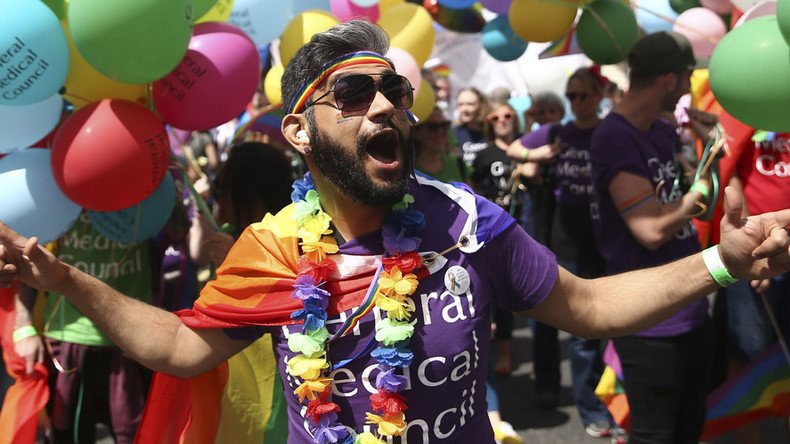More young people now identify as bisexual than gay or lesbian in UK

The number of young people identifying as bisexual has overtaken the number of those who consider themselves gay or lesbian for the first time, new figures have revealed.
Figures for 2015 released by the Office for National Statistic (ONS) indicate that 1.8 percent of people aged 16-24 identify as bisexual, up from 1 percent in 2012.
In 2015, 2.6% of Londoners identified themselves as Lesbian, Gay or Bisexual, the highest of any English region: https://t.co/6FPv44bvCk
— ONS (@ONS) October 5, 2016
Meanwhile, 1.5 percent of people in this age bracket identified as gay or lesbian, a 0.1 percent drop over four years.
The figures, collected as part of the Annual Population Survey, also show that overall, one in 30 young people in UK now identify as lesbian, gay or bisexual (LGB), compared with one in 38 in 2012. The national average across all age groups is one in 60.
In every age group except the 16 to 24s, the number of individuals identifying as lesbian or gay was greater than that of those who identified as bisexual, according to the survey, which polled some 320,000 people.
Young people were far more likely to identify as LGB than older people. While 3.3 percent of people within the 16- to 24-year-old bracket consider themselves LGB, just 0.6 percent of those aged 65 and over identify as LGB.
Here we come
— The Bisexual Index (@bisexualindex) October 6, 2016
Walkin' down the street
We get completely erased by
Ev'ryone we meet,
Hey hey were bisexual! pic.twitter.com/JFFrqORy4O
The ONS also showed that males are more likely to identify as LGB than females. Some 2 percent of males identified as LGB, with just 1.5 percent of females considering themselves LGB.
Stonewall, a London-based lesbian, gay and trans rights organization, welcomed the figures, but was critical of the survey for not including those who identify outside of the LGB categories.
“We would hope that individuals who had previously felt pressured to conceal their bi identity now feel safer and more empowered to be open about how they identify,” a spokesperson for the group said in a statement.
“It’s a shame the data doesn’t account for those who identify outside of the binaries of lesbian, gay and bi, however.
“We know that many LGBT people prefer not to label their sexual orientation in such a way, and so their input in this research is lost.”












